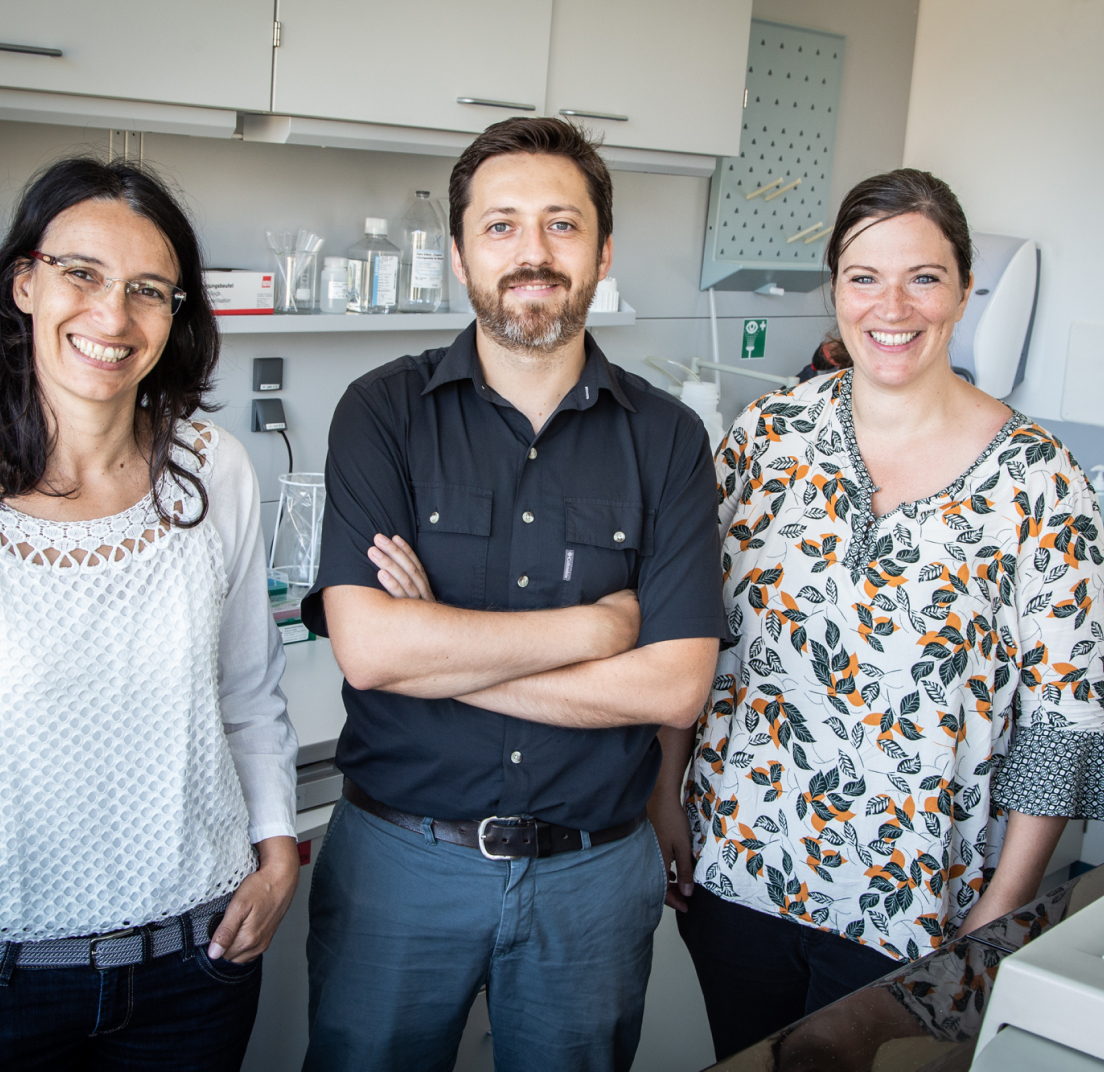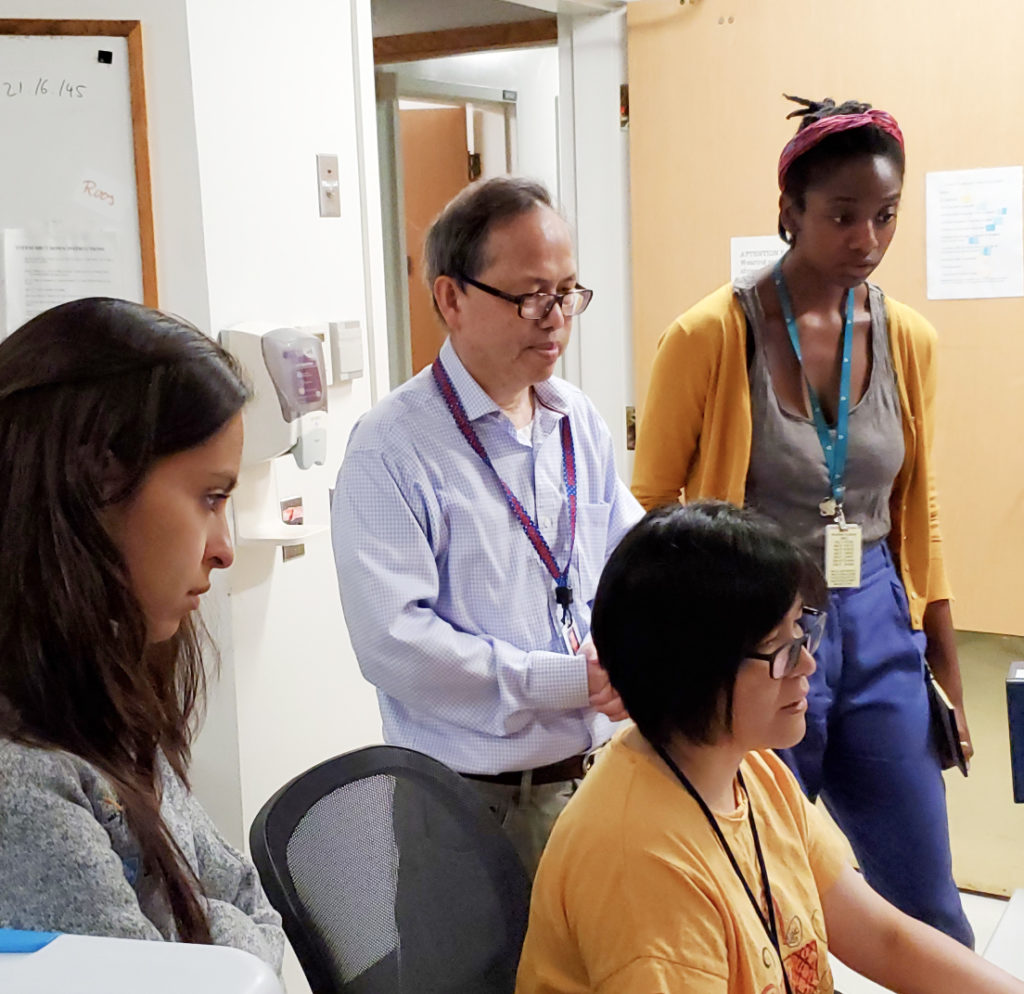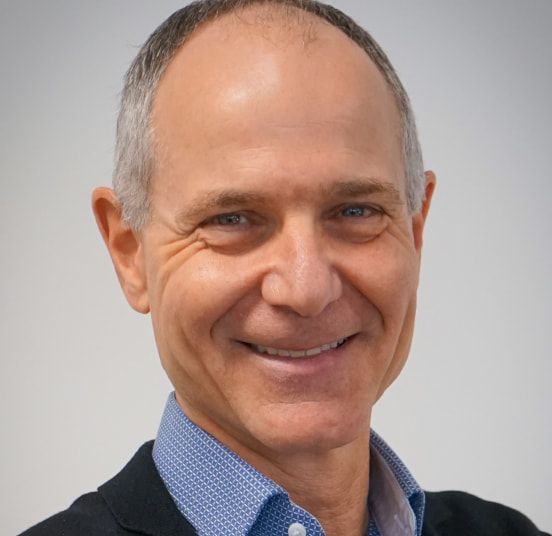“Immunosenescence, Premature Aging of the Immune System in ME/CFS and the Response to Fecal Microbe Transplantation”
Principal Investigator: Katharine Seton, PhD
“Immunosenescence, Premature Aging of the Immune System in ME/CFS and the Response to Fecal Microbe Transplantation”
Principal Investigator: Katharine Seton, PhD

Katharine A Seton, PhD, (Principle Investigator), is a postdoctoral research assistant in Professor Simon Cardings research group at the Quadram Institute Bioscience in Norwich, United Kingdom. She has recently completed her PhD researching immune reactivity to the intestinal microbiome in house- or bed-bound ME/CFS patients, which was funded by the UK charity Invest in ME. Her main research focus is progressing research into the cause of and treatments for ME/CFS and other chronic diseases involving post exertional malaise. One of her main research interests includes studying how the immune response is altered by gut microbes.
Study Summary
Premature immune ageing could explain immune dysfunction in ME/CFS. Gut microbes may contribute to the chronic activation of the immune system in ME/CFS patients by gaining access to the blood and immune cells because of a leaky gut wall which allows microbes and their products to access internal organs. Disturbances in gut microbe population and an imbalance of “good microbes” versus “bad microbes” that can accompany a leaky gut have been described in ME/CFS patients. Therapies which replenish health promoting gut microbes can restore immune function in the elderly and therefore are an attractive treatment option for ME/CFS. One such therapy is fecal microbe transplantation (FMT) – the transfer of stool microbes from a healthy person to a person with an abnormal population of gut microbes.
A clinical trial will assess the efficacy of FMT in ME/CFS patients and we will have access to trial participants and samples obtained as part of the trial. Using blood samples from trial participants we will investigate premature immune ageing in ME/CFS patients and determine whether FMT is able to restore immune function in ME/CFS patients and whether this affects symptoms. This is important both for understanding the role of the immune system in ME/CFS, and to understand a mechanism by which FMT could improve quality of life for people with ME/CFS.
Co-Investigators

Professor Simon R Carding is the head of the Quadram Institute (QI) Gut Microbes and Health research programme (2018-2023) and the Professor of Mucosal Immunology at the Norwich Medical School at UEA. He is responsible for directing the research programme of nine QI-based groups and six additional groups based at UEA, Imperial College/St. Marks University Hospital and Queen Mary University London. His research group is focussed on understanding the how gut microbes communicate with their host and the role that bacteria-generated microvesicles play in this crosstalk and in influencing host cell physiology to establish and maintain physical and mental health.
He is chief investigator of the MOTION longitudinal population-based study in individuals aged 60 years and older investigating the role of the ageing gut and microbiome in declining cognitive function and vision. Another major interest is identifying the causes of myalgic encephalomyelitis/chronic fatigue syndrome (ME/CFS). Working with the UK charity Invest in ME they are developing a centre of excellence for ME/CFS research in Norwich UK, a focus of which is a Phase IIb clinical trial (RESTORE ME) investigating the efficacy of faecal microbiota transplantation a treatment for which will begin in 2023 using QI’s purpose built FMT Facility. From 2023 he will also lead the UKRI/BBSRC supported multidisciplinary Food, Microbiome and Health institute strategic research programme comprising 15 research groups.

Dr Niharika A Duggal is an Assistant Professor at the Institute of Inflammation and Ageing, a trustee of the British Society of Research in Ageing and the Co-lead for the Ageing Network ‘Food-4-Years’. Her research group is focused on exploring the role of immune ageing as a contributor to pathological conditions that affect older adults with a higher incidence than the young, such as rheumatoid arthritis (RA), C. difficile infections (CDI) and COVID-19 infections.
She is also interested in investigating the underlying mechanisms driving immune senescence and examining the role of potential interventions in reversing the immune ageing clock. She has publications in high-impact journals in her field (Aging Cell, Nature Reviews Immunology) and was awarded the Koranchevsky prize and has recently been awarded a Springboard award by the Academy of Medical Sciences for the identification of novel therapies targeting the aged immune system.



350 N Glendale Ave.
Suite B #368
Glendale, CA 91206
SolveCFS@SolveCFS.org
704-364-0016
| Cookie | Duration | Description |
|---|---|---|
| cookielawinfo-checkbox-analytics | 11 months | This cookie is set by GDPR Cookie Consent plugin. The cookie is used to store the user consent for the cookies in the category "Analytics". |
| cookielawinfo-checkbox-functional | 11 months | The cookie is set by GDPR cookie consent to record the user consent for the cookies in the category "Functional". |
| cookielawinfo-checkbox-necessary | 11 months | This cookie is set by GDPR Cookie Consent plugin. The cookies is used to store the user consent for the cookies in the category "Necessary". |
| cookielawinfo-checkbox-others | 11 months | This cookie is set by GDPR Cookie Consent plugin. The cookie is used to store the user consent for the cookies in the category "Other. |
| cookielawinfo-checkbox-performance | 11 months | This cookie is set by GDPR Cookie Consent plugin. The cookie is used to store the user consent for the cookies in the category "Performance". |
| viewed_cookie_policy | 11 months | The cookie is set by the GDPR Cookie Consent plugin and is used to store whether or not user has consented to the use of cookies. It does not store any personal data. |
Please let us know more about you.
Please let us know more about you.
Please let us know more about you.
Please let us know more about you.